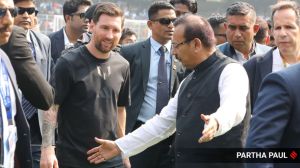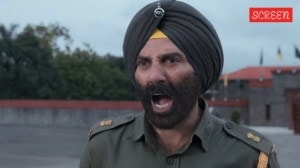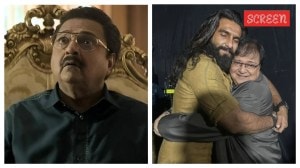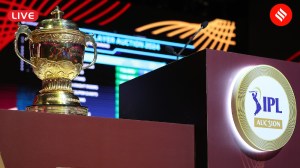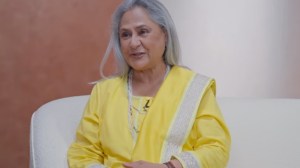Click here to follow Screen Digital on YouTube and stay updated with the latest from the world of cinema.
Hansal Mehta: ‘Adolescence made me introspect as a parent and helped me understand my children better’
Hansal Mehta talks about being 'overwhelmed by the sheer creative brilliance' of Netflix miniseries Adolescence, starring Stephen Graham and Owen Cooper in pivotal roles.
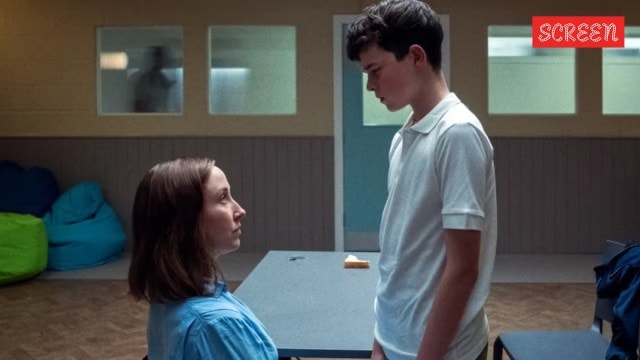 Adolescence on Netflix is a slow burn loved by the audience across the globe.
Adolescence on Netflix is a slow burn loved by the audience across the globe.Were you familiar with the incel culture or was the Netflix miniseries, Adolescence, an eye-opener?
Well, ‘incel’ is a word kids use a lot and the series was a kind of deep dive into a subculture within the new generation. Bullying is something I had watched from a distance when my kids were in school without really understanding the extent of it or the damage it can do to a child’s psyche, creating a creature full of toxic masculinity and misogyny, who would justify certain types of criminal behaviour.
My younger daughter has just finished her tenth standard while the elder one is in university. After watching the show, I wanted to ask them if everything was okay. I told my wife we shouldn’t send them away. She still has a connect with them, they talk to each other often, but as a father, I’m isolated because they feel “I won’t get it”.
My interactions with my girls have increased since watching this show which shakes you up and wakes you up. I’ve watched it twice already. The first time I was overwhelmed by its sheer creative brilliance. It sparked awe and envy, made me introspect as a filmmaker. I watched it a second time for the content to sink in. This time it made me introspect as a parent and helped me understand my children better.
Also Read | Adolescence review: Netflix goes god-tier with one of the greatest shows in modern TV history
How did your daughter react to the series?
The younger one, who is 15, was very engaged. At the same time, she was also nonchalant about certain things, like the conversations in episode two on how things happen online. Her “yeah this happens” made me realise it’s become almost acceptable that these things exist.
It doesn’t end there. The undercurrent of patriarchal violence, even if it is not physical, sets families on edge as the patriarch has to be constantly humoured and this eventually extends to the workplace. Sometimes when I go for meetings, I’m warned to be careful because “the boss is in a bad mood”. Whether it’s a studio head, a business tycoon or the editor of a newspaper, some unconsciously imbibe the mental abuse they have suffered and could practice it when in a position of power. It’s a theme I would like to explore beyond what is stark black and white.
Filmmakers Anurag Kashyap and Sudhir Mishra have stated that even if we make it, they don’t see such content being greenlit by the streamers, even Netflix India.
I don’t want to engage with what others have said. Kohrra (another Netflix crime thriller series) was greenlit, as was my Scam (on SonyLiv) and, more recently, Black Warrant (a Netflix series). The job of the lower executives is simply to curate, guide and look at content critically from a business and social perspective, which they are doing. It’s for writers, actors and creators to come up with content that is necessary for the times we live in. Maybe we are not capable enough, not being pushed enough or don’t respect our audience’s intelligence along with our collective intelligence while writing, creating and collaborating.
An exception is Applause Entertainment which thanks to the sensibility of its CEO, Sameer Nair, has invested in out-of-the-box shows dealing with a variety of themes, including abuse, in Criminal Justice (legal drama series on JioHotstar) and Undekhi (crime thriller series on SonyLIv). They support, collaborate and believe in pushing artistic limits.
Ekta Kapoor has urged creators to fight corporate studios and apps who only think of money and numbers by putting in their own money into shows.
If we had to do everything, why would we need the system? No, the system has to function as a whole.
But frustrated by creative interference, many filmmakers today would rather create something the way they see it, then sell the finished product to the platform.
The only time I suffered creative interference was during the making of my film Simran and it came from an actor (Kangana Ranaut) not the studio or the producer. Power over somebody perceived as weaker should not exist, be it between a producer-director, actor-director, director-actor, boss-employee or even teacher-student. We live in a civilized society so everything has to be a collaboration, a conversation, an exchange and not a diktat.
One criticism against Adolescence is that it is promoting an anti-culture in a world that is already fractured and fragmented.
Yes, we are deeply polarized and this is reflective of the disturbing times we live in, but I’ve always been critical in my work, showing characters as they are. As filmmakers, our job is to present life stories, it’s for the people watching to interpret them. Yes, sometimes the content does provoke debates like Adolescence, but that’s not because we are taking sides.
- 01
- 02
- 03
- 04
- 05

















